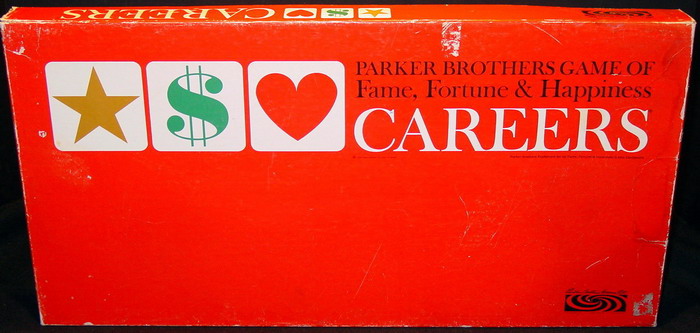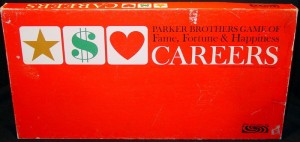by Julie Vick
Readers of this blog know that Career Services staff blog that unlikely and different experiences can actually inform your job search, and I really mean DIFFERENT. Some of the topics on which we have posts are TV watching, dirty diapers, Dr. Who, your cat, and lunch; if you take a moment to read those posts you WILL find that those experience can be meaningful for some aspect of your search.
One of MY passions is playing Scrabble, both in person and online. I love words and really enjoy figuring out the best word I can make with as many of my seven letters as possible. I compare doing that to writing a strong resume or CV and a cover letter. But I can’t put my word on the board just anywhere; it has to connect to a word already played. Just so, my resume and cover letter must show a connection to the job to which I’m applying. As I may have to tweak the word to find it a place on the board, so I need to tailor my job hunting materials to each specific job. And the third strategy I employ is to try to place high-scoring letters on triple- or double-letter spaces and/or make sure the word falls on a triple- or double-word space. That is somewhat similar to getting some useful information about the job or employer before you finish the written materials which might let you say in the letter, “Your colleague suggested I apply for the job because my experience and abilities are a good match for it.” SO, to review: the excitement of making a good word AND playing it well is akin to writing strong and targeted application materials that get you a phone interview. It’s not enough to put together a good word from the seven letters in your tile tray; you also need to make a connection.
There are many low moments with Scrabble too. When I have a tray with three “I’s”, two “U’s” and two “N’s” on it, I have to decide whether or not to turn in some of those “I’s” and other letters. I’ll get new letters but lose a turn to play. (If I have a lot of “I’s” plus other low-scoring letters, I usually trade some of them in. Unfortunately, over the next few turns they seem to find me again.) It’s the same with job hunting. If you find that your strategy isn’t resulting in some interviews perhaps you need to rethink it; maybe you need to talk with some Penn alumni/ae in the field that interests you so that your letters sound more knowledgeable. Perhaps your resume doesn’t provide enough detail — or provides too much detail – and needs significant REVISION.
About every 10-15 games I play what’s called a “bingo,” that is, I manage to use all seven letters that are on my tray in a play. A bingo earns you 50 extra points in addition to the points for the word. The ultimate job search bingo would be an offer but it could also be an interview or even discovery of an opportunity that’s great for you. I’m always on the lookout for a bingo even though for me with Scrabble I know they happen only occasionally. You need to do the same…Take my WORD for it.






